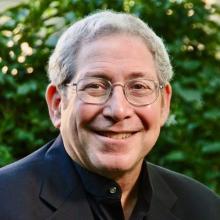Today's Lunch and Learn: How virtual reality is creating a new world of communications
During an online "Lunch and Learn" session on Friday, July 28, at noon, the National Press Club Communicators Team will examine how virtual reality (VR) is being integrated into communications programs to create an environment similar to the real world as a new way to reach target audiences.
 Dr. Mitch Marovitz, a Communicator member of the Club who leads the Communications, Journalism, and Speech program at the University of Maryland Global Campus (UMGC), will discuss the role of VR in the classroom and its potential benefits for professional communications programs. This session will be conducted on Zoom and admission is free and open to all members of the National Press Club. Register here.
Dr. Mitch Marovitz, a Communicator member of the Club who leads the Communications, Journalism, and Speech program at the University of Maryland Global Campus (UMGC), will discuss the role of VR in the classroom and its potential benefits for professional communications programs. This session will be conducted on Zoom and admission is free and open to all members of the National Press Club. Register here.
UMGC is one of an original group of 10 universities selected to participate in a two-year experiment, which is partially funded by Meta,the parent company of Facebook,to determine if this new medium has value as an educational tool for adult learners among the student body and, if so, how best to incorporate it into curricula.
A virtual metaverse allows students and faculty to meet and walk around virtual spaces. The UMGC program utilizes headsets, with spatial audio and avatar presence detection, to pilot virtual and augmented reality learning environments and creates a new dimension of learning and interaction.
According to MarketsandMarkets Research, the global VR market is forecast to grow 27 percent annually to 20.9 billion in 2025. The firm says gaming and entertainment are driving the VR market, but new technologies are enabling opportunities in the retail, military and healthcare sectors.
Marovitz says he’s excited to bring technologies to UMGC that make education more attractive and accessible to people who are parents or in the workforce full time. During this one-hour session, he will explain the nature of the experiments the university is conducting with VR and what he’s learned so far. He’ll also discuss future experiments, including one involving a strategic communications graduate course.
